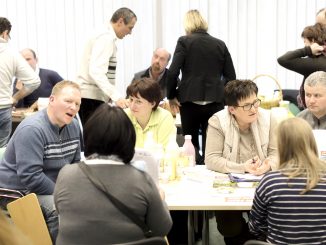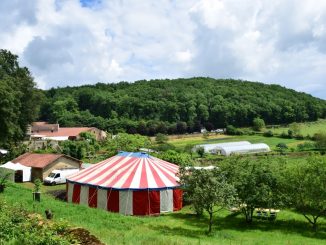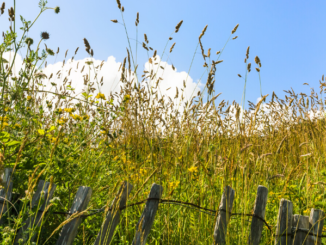As we build towards the European Rural Sustainability Gathering in Greece, 17-20th May, we publish now an exclusive interview with Shannon McCabe of Baker Creek Heirloom Seed Company. Interestingly, many traditional European seeds are available in US but not EU. This interview was conducted at the Peliti Olympic Seed Festival, which took place in Drama Greece last month. Peliti are co-organisers of the Gathering.
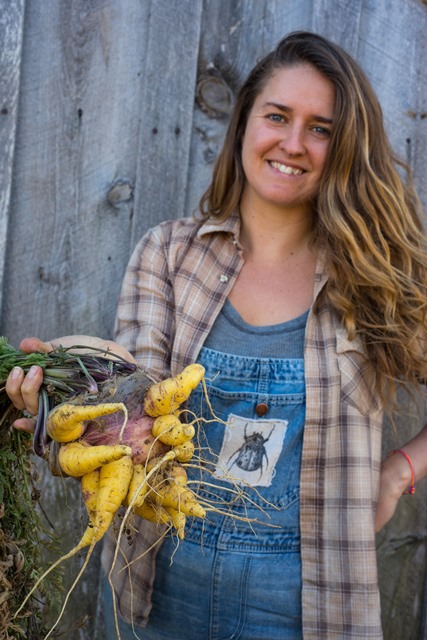
Shannon McCabe is member of the staff team of the Baker Creek Heirloom Seed Company based in Missouri USA. She has worked as a vegetable farmer and manager of farmers markets, before joining the company’s team of 50 employeess. Shannon travels the world to find and describe traditional seed varieties for the company’s commercial catalogue offers 1800 varieties for sale. In conversation with Hannes Lorenzen.
Hannes Lorenzen. The USA can be surprising in many ways. Talking of seed marketing, you seem to enjoy broad freedom – at least concerning the marketing traditional seed varieties. Is that freedom a political accident or is it a conscientious reaction to loss of genetic diversity following exclusive rights and dominance of GMO and hybrid seeds?
Shannon McCabe. Maybe it is both. Big farming is today in the hands of a handful of corporations. And GMOs and patents are their power. But many Americans have become aware that their food has lost life. For decades now we have been consuming mainly processed food based on corn, soy, sugar and meat. More and more people have had enough of that. Many are also concerned of their own health. There is a dearth in America for better food that is fresh, more diverse and tastier. People are also getting curious about food culture again. Not only those who have travelled abroad and got a taste of that, but people who enjoy rediscovering and eating good stuff from their neighborhood. Our company is part of this new move. We serve farmers and consumers in making it happen. That is our passion and our business.
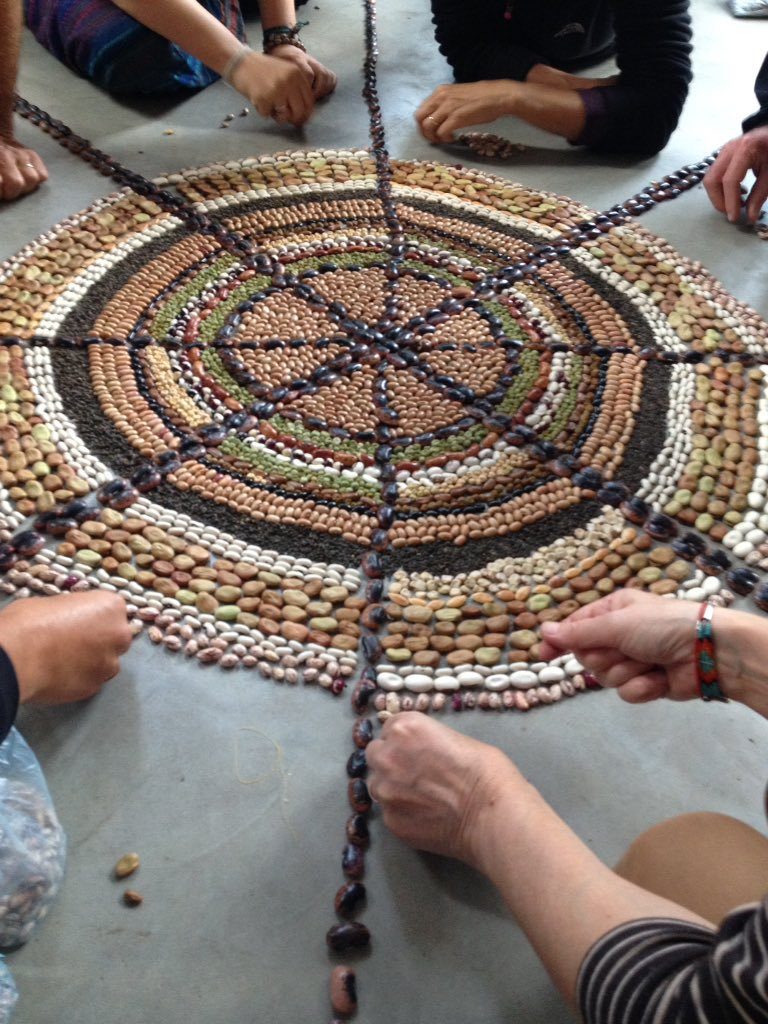
HL. Your companies’ short history reads like an American dream. 17 year old Jere Gettle has an idea, selling the seed survival kit for fearful people who expect the end of the world to come in the year 2000. It did not happen. But the seed was sold. And people have become curious about seed diversity, new tastes and new colors. Farmers’ markets get popular, small farmers found a new way to survive. The company grew very quickly. Today it employs 50 permanent staff and preserves a collection of over 1800 varieties of vegetables… what is the recipe of such a success?
SM. We are following a trend and creating it at the same time, the curiousness, the availability and the market for diversity. Our customers are mainly small farmers who have found a place to survive with those seeds, and gardeners and consumers who look for new food to enjoy. When I travel and look for traditional seeds around the world I have this in mind. I want to understand and describe a seed story. Who has cultivated or preserved it? What was its place in the local food diet? I write about the colors, the taste, growing conditions or shelf life. This is what people want to know. Then we ask farmers to produce the seed and offer them through our catalogue. There is no secret. It’s what people want. They could be longing for worse.
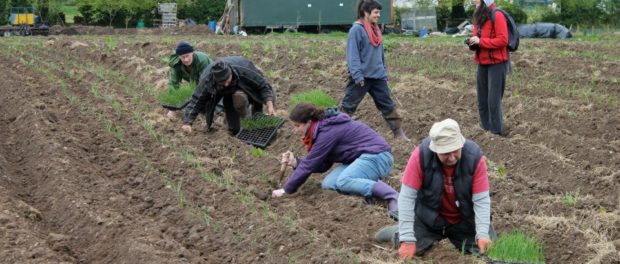
HL. In Europe the argument for a very strict seed legislation is that farmers and consumers must be protected from bad seed quality. The seeds laws are supposed to avoid spreading of disease, bad germination and instability of yields. Are you allowed to market anything you can describe and reproduce?
SM. Yes we can. But we ourselves check for quality in what we sell. That includes germination, vigor, pest resistance and so on. If we would not do that people would not come back and buy somewhere else. We guarantee that the seed we offer is non GMO, non-hybrid, not chemically treated, germinates well and can be freely reproduced by anyone.
HL. Is the seed organic?
SM. No. We have left that market to the organic sector. They went the path of large farms, we are more interested to work with small farmers and gardeners. Still we follow the organic standards when we produce our seeds. We just do not ask for certification for organic production. With more people involved in saving and using traditional seeds we create more space for diversification, maybe even more food security for all. We are close to people who want the seeds in their hands. We are of course present in States like New England, Maine and California with smaller structures and projects. But we also sell a lot to urban gardeners and food projects.
HL. The European seed diversity scene is often organized on a voluntary and non-profit basis. Many consider seeds as common good that should not be commercialized. 40% of what you offer in your catalogue was collected in Europe. Do you profit from bad seed legislation in Europe or a missing business instinct of Europeans?
SM. What’s wrong about business? We collect and sell seeds that are not allowed on the European market. In describing and offering those seeds in the US is no loss to the European farmers and consumers, rather a creative social seed banking until you might get laws that fit. We offer only seed varieties which do not carry exclusive rights. Our seeds remain a common good for all. And our business might encourage more people to bring biodiversity back to the heart of our food systems.
Baker Creek Heirloom Seed Company
Full catalogue of Baker Creek rare seeds
https://www.youtube.com/watch?v=EHtn4hE8_IY



